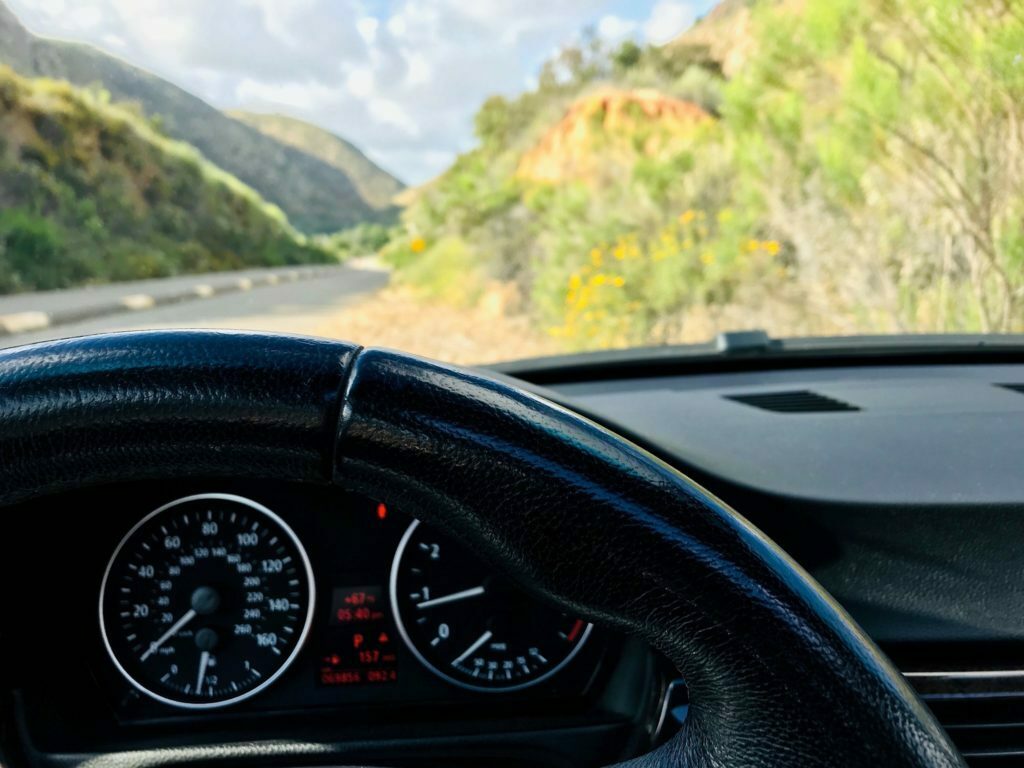For a long time now, my friends and I have been hoping to someday take a big road trip. This is a dream that goes all the way back to before we could even legally drive! And now, I think, we’re finally on the verge of actually doing it. We have some money saved up, and we’re no longer battling with our parents over the idea, so I think this is going to happen.
Only, we don’t really have a plan! So I’m asking the experts: how would you recommend that we tackle the planning of this thing? Is it that important to lay things out ahead of time? What precautions should we take?
Ah, the road trip! Few vacations can be as memorable and as fun as a good road trip. And the great American tradition is still alive and well, according to the latest research: more Americans than ever are taking their vacations by car, and it has become more popular to take even just a few days off to drive around and explore the country.
So what can you do to ensure that your road trip is the best that it can be? Well, you’re off to a good start thanks to your focus on planning. While the freewheeling feel of a road trip is certainly a part of the appeal, it’s also true that you’ll enjoy yourself more if you’re not stressing over last-minute hotel reservations or shuffling maps to pick out routes you didn’t bother to mark ahead of time. So, by all means, take some time and consider the things that you’ll need to manage during your road trip. We’ll go over some of the key parts of the equation below.
For starters, a good road trip requires a good car. You’ll want to make sure you have a reliable ride if you’re going a long distance, say the experts at Ernest McCarty Ford, a dealership that offers new 2018 Ford vehicles. While some vacationers rent cars to keep the mileage off of their own vehicles, that may not be feasible or cost-effective given the length of your trip and the age of your crew. But you probably have some options in mind if you’re convinced that the road trip is finally happening, so just choose carefully. You could also consider renting an RV or taking multiple vehicles, depending on the size of your crew.
Once you’ve got a reliable vehicle, make sure that it’s up to the task. Swing by a trusted mechanic–be sure to choose a properly certified one, say mechanics at an automotive and diesel technology college in NY–and have the pros double-check your chosen vehicle for any pending issues. Make sure you’ve got fresh belts, decent tires, and other essentials before you hit the road. It also wouldn’t hurt to have some on-the-road coverage from a group such as AAA.
Next up: planning the trip itself. While it’s not strictly necessary to plan every single aspect of a road trip ahead of time, it’s always a good idea to have a general sense of how far you’ll be driving each day. Carve out more time than you think you’ll need for breaks and, of course, for actually enjoying the places you reach. It may seem easy to drive for hours on end as you dream up your vacation, but when you get to the point at which you will actually have to be out there doing all of that driving, you may not be quite as enthused about the long hours as you were when things were still happening in your imagination!
Set goals and decide which places you want to visit. Be sure to look for spots off the beaten trail, recommend travel and vacation experts. And keep any disabilities or special needs that your group may have in mind. You might be surprised at just how many appropriate vacation activities you can find in less famous spots, say the developers behind sensory-friendly activities in Lansing, MI. And remember those big cities might be more fun to visit using methods other than cars–that’s not to say that you can’t visit a place like Chicago or New York City on a road trip, of course, but it’s good to remember that taking a car to such places can be stressful and expensive.
Bring a paper map and other roadside basics, like road flares and a spare tire. You never know when you could find yourself in an area with spotty cell service! Drawing up an itinerary and printing it out on paper isn’t a bad idea, either.
You should consider making some hotel reservations ahead of time (you can also consider RV parks or campsites, depending on your vehicle and your preparations). Keep in mind that your road trip may result in you ending up in a place other than where you intended to be on a given night of your trip–for this reason, it’s a good idea to know the cancellation policies of the hotels and motels you’re considering. Remember that it’s better to have to cancel a reservation than to find that it’s too late to get a room! You don’t want to end up in a situation where you have to keep driving at the end of the day to find a vacancy. Driving more than you planned to when you’re tired can be dangerous.
Speaking of danger, be sure to remember to stay safe on the road. You may be on vacation, but save the rowdy fun for when you’ve safely reached your next destination. Keep your eyes on the road, rotate drivers regularly, make sure everyone stays sober, and try to limit distractions like eating food, fiddling with the radio, and turning to look at friends you’re talking to. When you’re driving, just drive!
Of course, once you’ve reached your destination for the night, it’s time to have fun. You may be able to walk from your hotel to local nightlife spots, making it easy to avoid driving tired or while intoxicated. You can also grab snacks, food, and drinks for your hotel or for an outdoor meal. Shop local, say the experts at a popular liquor store in Lawrenceville, NJ–you’ll find that you get great service and, perhaps, great tips on what to do in the place you’re visiting. Part of the appeal of road trips is the way in which they can immerse us in the places that we’re driving to and through.
Planning a road trip isn’t too tough, but you’ll certainly want to do some planning and always keep safety rules in mind. Good luck!
“Travel makes one modest. You see what a tiny place you occupy in this world.” — Gustav Flaubert











